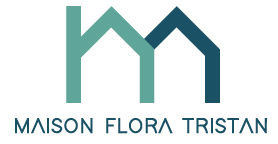EXTERNAL SERVICES

External services allow women who do not necessarily want to be housed to begin a process of de-victimization. Some want to take stock and understand the cycle of domestic violence. Others want to refine the safety net and adapt it to post-separation domestic violence. Still others want to plan a safe departure.
“Many people are unaware that it is not necessary to reside in a shelter to benefit from our services. You can call for advice, safety plans, and psychological help, even if you are unsure whether you are in an abusive relationship. Loved ones and family can call if they think someone around them needs help. There are countless external programs for those who do not reside in the shelter.”
“Many people are unaware that it is not necessary to reside in a shelter to benefit from our services. You can call for advice, safety plans, and psychological help, even if you are unsure whether you are in an abusive relationship. Loved ones and family can call if they think someone around them needs help. There are countless external programs for those who do not reside in the shelter.”

Individual intervention
Women who want individual, confidential and secure psychosocial follow-up can come to our external office to meet a worker.
The number of meetings varies depending on the intervention plan defined with the woman. With the help of the worker, the women take stock of their situation, assess the dangerousness of their situation and develop a personalized safety plan. Some prepare to leave to go to accommodation, whether at the MFT or in another house depending on availability.

Intervention by text message and via social networks
Women can now benefit from our support and intervention services via text messaging, and via Facebook Messenger. Indeed, it can be difficult for a woman to ask for help if the violent partner is at home more often because of health measures or teleworking. These services therefore allow women to ask for help or obtain information about our services in another way.
These services allow women to discuss their experiences and prepare for a safe departure when they feel in danger. They can also inform women about domestic violence and about the events offered by the MFT, either internally or externally.

Collective intervention
Group workshops have been developed so that women victims of domestic violence who are not in accommodation can break their isolation and talk about their situation with women who have a similar experience to theirs.
Two formats are offered: workshops with predetermined topics and coffee chats The workshops aim to communicate precise information about themes that may affect victims of domestic violence. The coffee talks, on the other hand, aim to allow women to discuss their experiences while having the support of the group and the on-site worker.
